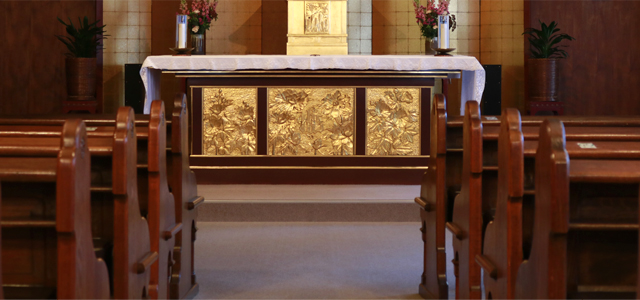
Catholic Q&A
Christianity speaks of the concept of the Trinity. This is something I do not understand. Could you please explain it to me?
Let us set aside theological debates pertaining to the Trinity. I wish to describe here the fundamental content of religious experience in Christianity, for that in itself is not at all problematic. If one believes that Jesus is the mediator of God himself in an absolute way, it may be asserted that faith in the Trinity is already implied there.
To begin with, the primary reason why Jesus was rejected and crucified by the Jews, lay in the fact that he absolutely claimed to be the word of God. Jesus insisted that those who accepted him accepted God, and conversely, that those who rejected him rejected God. In other words, he stressed the fact that the involvement a person had with himself, would determine the ultimate fate of that person before God. As it is stated in the Bible, “He who believes in Me, believes not in Me but in Him who sent Me. And he who sees Me sees Him who sent Me.” (John 12:44~45).
The disciples who encountered the event of Jesus’s resurrection realized that this claim made by him during his lifetime was something confirmed by God, and that God had acknowledged his claim as being correct and revealed it publicly. In this way, faith in Jesus Christ was born.
This faith does not involve our viewing Jesus merely as one of many prophets of the past, or one of the many religious leaders who have appeared in history. Rather, we believe that in this Jesus, God has presented himself in history only once, in an absolute way. Jesus does more than just speak the word of God. The Christian faith includes our believing that he is the word of God himself, which will never be either withdrawn nor amended. As it is stated in the letter to the Hebrews, “In the past God spoke to our ancestors through the prophets at many times and in various ways, but in these last days he has spoken to us by his Son.” (Hebrews 1:1).
Jesus is the word of God. The belief that he is the mediator of God himself has been described by the Bible and Church tradition, by referring to him as “the Son of God.” For the time being let us bear in mind that what the Christian faith implies is that when we meet Jesus we meet God the Father, and that Jesus is the sole mediator between us and God the father.
This may lead people to think that only two persons, namely God and the Son of God, are to be considered. That though is not the case, since this implicitly entails also faith in the Holy Spirit, who was mentioned earlier. The fundamental experience of Christian faith implies that in the Holy Spirit we are united with Jesus Christ, and along with Jesus Christ we offer praise to God the Father. Conversely, the love and blessings of God the Father that are showered on His only Son, Jesus Christ, are also showered down upon us who are united with Jesus in the Holy Spirit.
Within the history of Christianity wherein numerous theologies emerged, this faith experience has been systematized in the doctrine of the Trinity. It is the doctrine stating that within the one God there are three independent “persons” who share the essence of God with each other. It seeks to explain the existence of God using complex philosophical terms, yet it is principally based on our primary religious experience.
